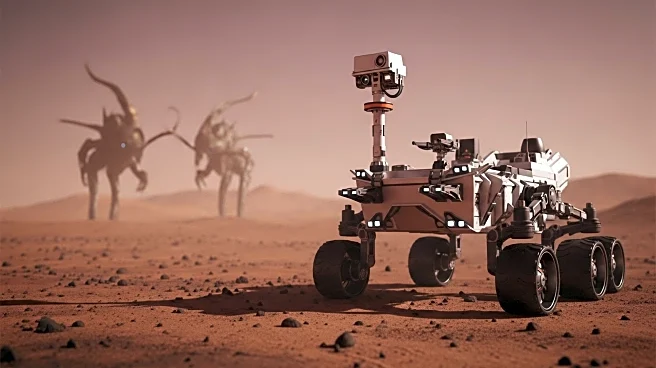What's Happening?
Scientists are exploring the possibility of sending certain Earth species to Mars as potential colonists. These species are selected based on their ability to withstand harsh conditions such as intense radiation and low oxygen levels. Among the candidates are tardigrades, known for their resilience in extreme environments, and leaf-eared mice, which have survived in conditions similar to Mars. Other potential colonists include crickets, lichens, and cyanobacteria, which could provide food, oxygen, and soil enrichment. The study highlights the adaptability of these species and their potential roles in supporting human colonization efforts on Mars.
Why It's Important?
The identification of potential animal colonists for Mars is crucial for future space exploration and colonization efforts. These species could play significant roles in creating sustainable ecosystems on Mars, providing food, oxygen, and waste recycling. The research underscores the importance of biodiversity in space missions and the potential for these organisms to support human life in extraterrestrial environments. Successful colonization of Mars could pave the way for further exploration and settlement of other planets, expanding human presence in the solar system.
Beyond the Headlines
The ethical implications of introducing Earth species to Mars are significant. Scientists must consider the potential impact on Mars' environment and the long-term consequences of establishing new ecosystems. The study also raises questions about the preservation of Earth's biodiversity and the responsibilities of humans in managing life beyond our planet. These considerations are essential in ensuring that space exploration is conducted responsibly and sustainably.











